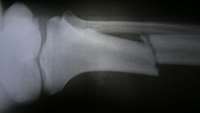German scientists make paralyzed mice walk again
German researchers have enabled mice paralyzed after spinal cord injuries to walk again, re-establishing a neural link hitherto considered irreparable in mammals by using a designer protein injected into the brain.
The prevalence of neural injuries from unproven stem cell therapies
A team of researchers led by UConn Health (CT, USA) recently conducted a nationwide survey of US academic neurologists’ experience in complications associated with stem cell tourism.
New insights into how COVID-19 damages the brain
New research offers a novel explanation for the long-term brain problems many COVID-19 patients experience.
Stanford team creates cellular atlas of the human lung
A team of researchers from multiple departments at Stanford University has created a cellular atlas of the human lung that highlights the dozens of cell types that comprise parts of the lungs.
Inflammation caused by bacterial infection puts brain stem cells on alert
A study directed by Isabel Fariñas and published in the journal Cell Stem Cell reveals that the inflammation produced by a bacterial infection alerts brain stem cells and prepares their activation for the production of new neurons.
Retinal transplant boost opens door to treat eyesight loss
Dying retinal cells send out a rescue signal to recruit stem cells and repair eye damage, according to the findings of a new study published today in the journal Molecular Therapy. The findings open the door to restoring eyesight by modifying stem cells to follow the signal and transplanting them into the eye.
Stem cell-coated biomaterial speeds up fracture repair
Scientists at King’s College London (UK) have developed a bandage-like biomaterial that enables the transplantation of bone-forming stem cells directly into bone fractures, dramatically speeding up the healing process.
E-Cigarette Exposure Decreases Bone Marrow Hematopoietic Progenitor Cells
Electronic cigarettes (E-cigs) generate nicotine containing aerosols for inhalation and have emerged as a popular tobacco product among adolescents and young adults, yet little is known about their health effects due to their relatively recent introduction.
Artificial organ growth manipulated by novel 3D-printed fluid system
A team of scientists from the University of Washington Medicine Institute of Stem Cell and Regenerative Medicine (WA, USA) and Rice University (TX, USA) has developed a novel method to control the growth of artificial organs.












